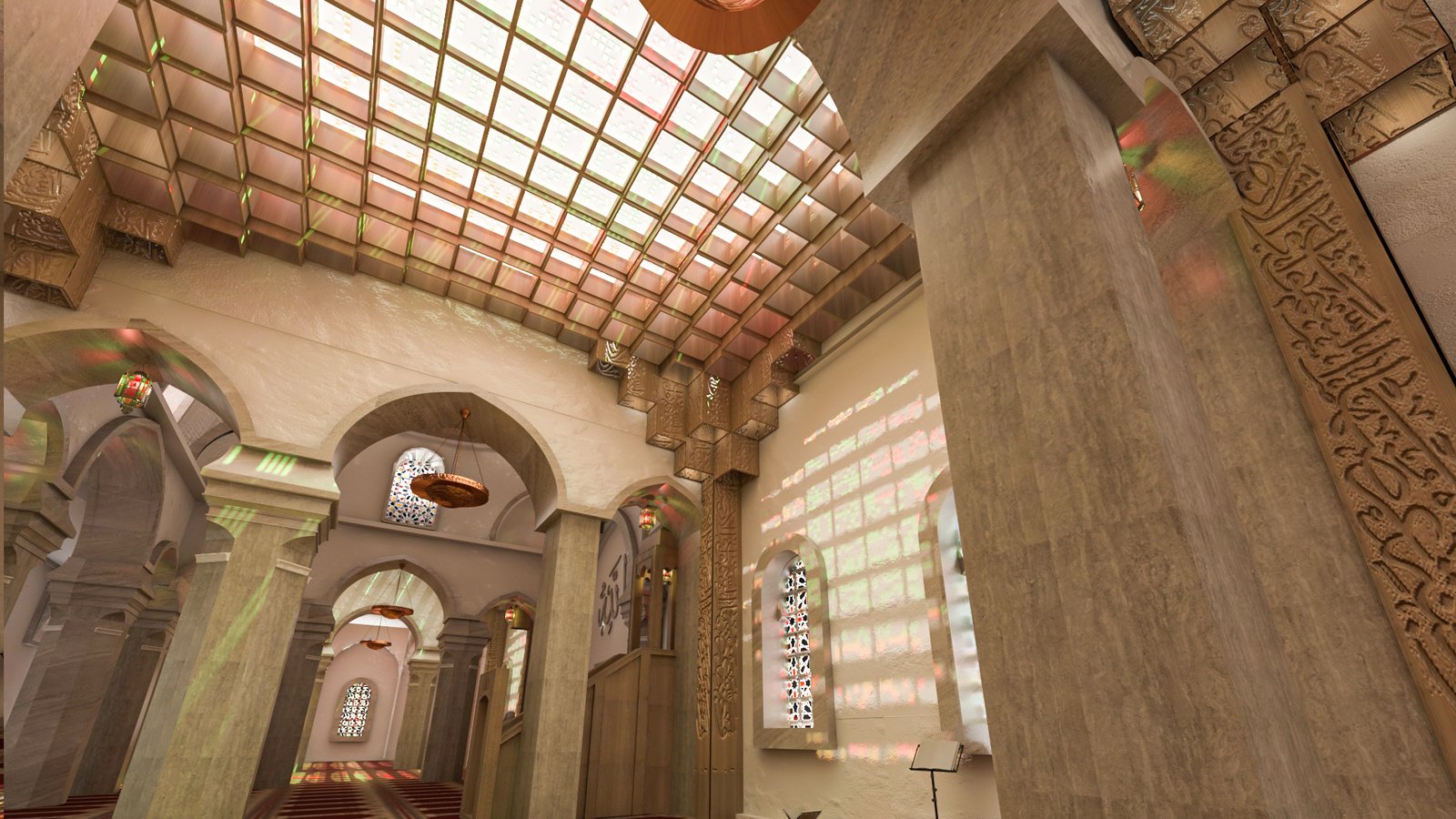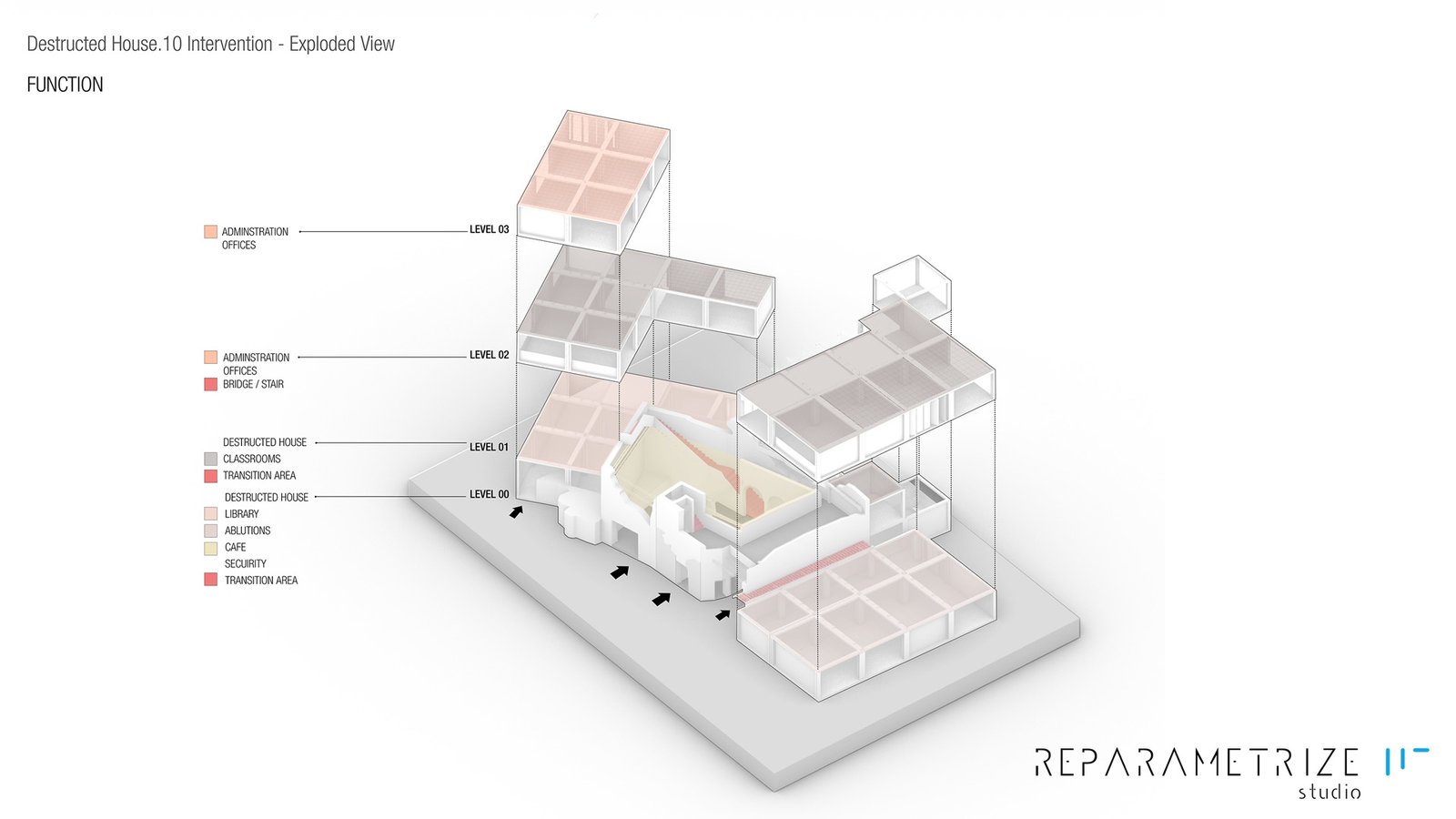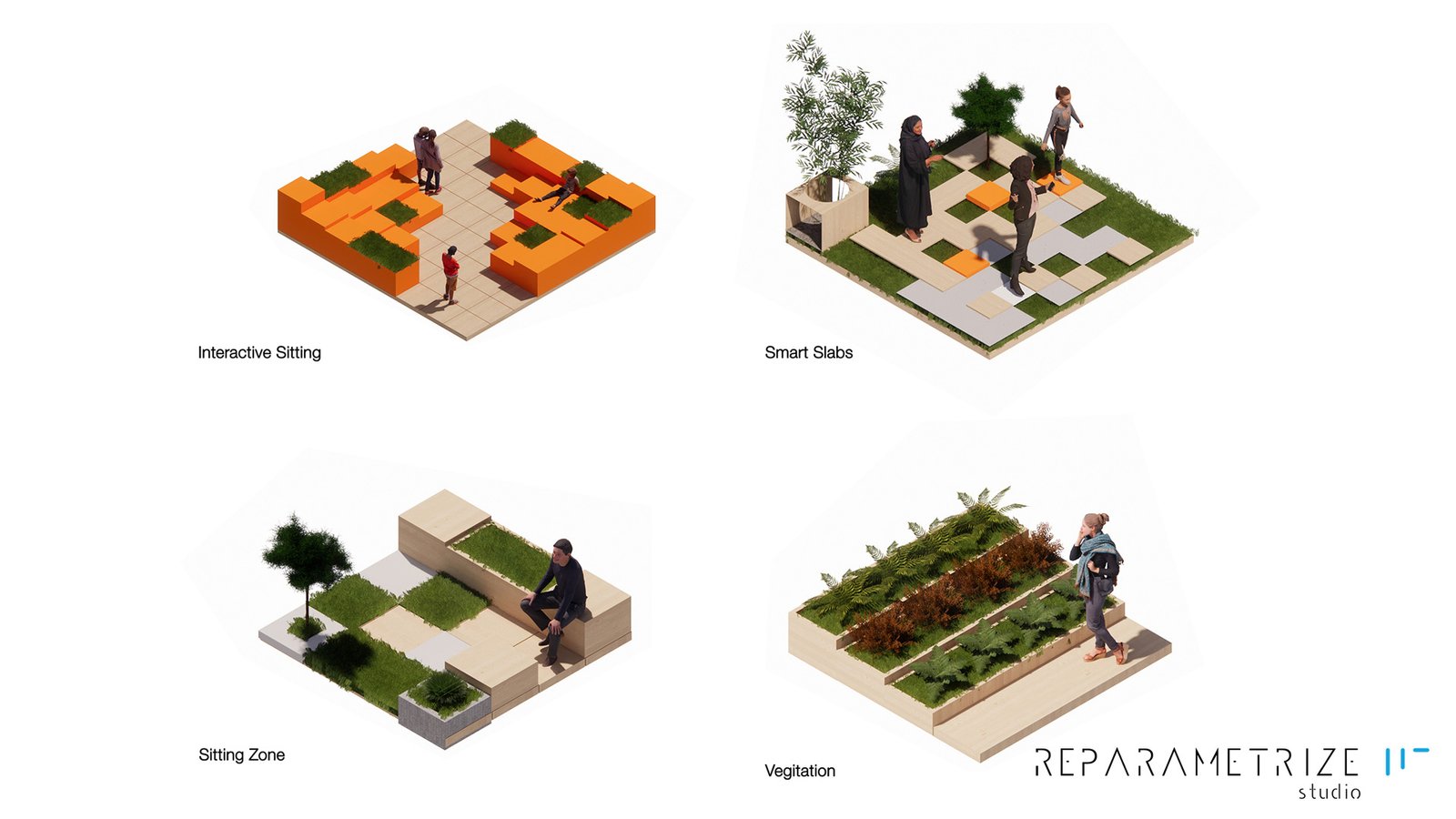Al Nouri Complex
Mousl, Iraq
Our proposal for Al Nouri Complex in Mosul, Iraq.
Following our methodology in our research “Recoding Post-War Syria”
Our strategy aims to create a global sustainable network through the implementation of a uniform, comprehensive methodology which can be adopted in various post-crisis scenarios to achieve prompt and effective recovery not only in terms of the built environment but also in terms of repatching social fractures, learning from the state of emergency (intra-crisis), emphasizing the role of the individual, mobilizing economic flow, and upgrading existing infrastructure networks in order to ultimately achieve a self sufficient, smart ecosystem that is consolidated on several scales ranging from micro to macro.
The strategy follows a guideline which consists of goals distributed under 16 categories based on the deficiencies which emerge in post-crisis scenarios in general regarding destruction as an opportunity to “do it better” thereby working towards an optimal contemporary recovery state.
Moving away from the tabula rasa method and making use of the accumulated data in all its forms, pre, intra and post crisis.


















